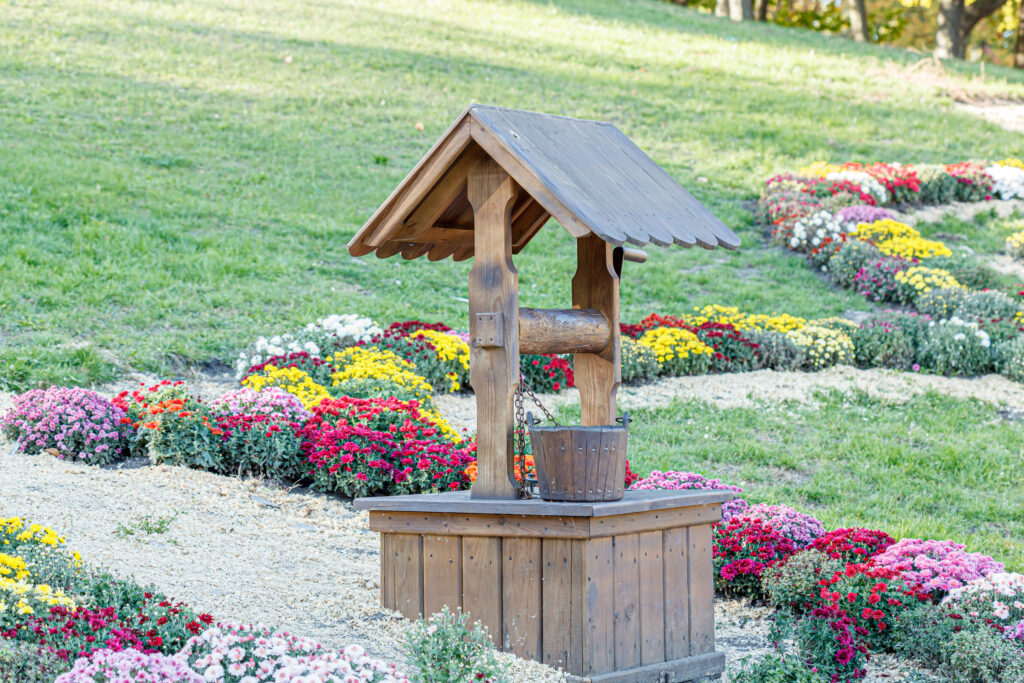By Dixie Somers
If you're lucky enough to have a well on your property, you know the benefits of having access to your own clean, fresh water. But owning a private well also means taking on the responsibility of maintaining it and ensuring that your water continues to meet safety standards; a well isn't just something you can forget about. To help you keep your well running smoothly and safely, we've compiled a list of must-have equipment for homes with private wells. Ready to maximize your well's potential? Let's get started!
Well Pump
The most important piece of equipment for any private well is the well pump. This device is responsible for bringing water from the underground aquifer to the surface and into your home's plumbing system. There are two main types of well pumps: submersible and jet pumps.
Submersible pumps are installed inside the well itself and are fully submerged in water. They are more efficient and quieter than jet pumps, but can be more expensive to install and repair. Jet pumps, on the other hand, are located above ground and use suction to pull water from the well. These pumps are less expensive but also less efficient and noisier. No matter which type of pump you choose, it's crucial to regularly maintain and inspect it to ensure it is working properly.
To determine which type of pump you have, you can look at where it is located. If your pump is above ground and connected to a pipe leading down into the well, it's most likely a jet pump. On the other hand, if your pump is located inside the well itself, it's likely a submersible pump. You can also consult the manual or ask your well contractor for more information.
Pressure Tank
A pressure tank works alongside your well pump to regulate water pressure in your home. This equipment stores pressurized air that helps control the flow of water into your plumbing system. Without a properly functioning pressure tank, you may experience issues such as low water pressure or cycling water temperature. Be sure to regularly check the air pressure in your tank and replace it when needed, as well as periodically drain and clean the tank to prevent buildup of sediment and bacteria.
Water Filtration System
While your private well may provide you with clean water, it's still a good idea to have a water filtration system in place. This can help remove any potential contaminants such as bacteria, chemicals or minerals that may be present in your well water. There are several types of filtration systems available, including whole-house filters, point-of-use filters and reverse osmosis systems. The type you choose will depend on your specific needs and budget.
When it comes to choosing the right water filtration system for your well, you'll want to consult a professional. A qualified well contractor or water treatment specialist, such as someone at Berg Well Drilling, can assess your well's water quality and recommend the best filtration system for your specific needs. They can also help with installation and maintenance of the system, ensuring that it is functioning properly and effectively removing any potential contaminants from your well water. Don't hesitate to reach out to a professional for guidance in selecting and installing a good filtration system for your well.
Water Testing Kit
Regularly testing your well water is essential to ensure its safety and quality. A water testing kit allows you to check for a variety of potential contaminants, including bacteria, nitrates and pH levels. We recommend that you test your well water at least once a year, but it's also a good idea to test after any major changes such as construction or flooding near the well.
If you neglect to regularly test your well water, you run the risk of consuming contaminated water. This can lead to serious health issues, as well as damage to your plumbing and appliances. In addition, if you do not monitor your well's water quality, any potential contamination may go unnoticed until it becomes a major problem that requires costly repairs or even the need for a new well. Regular testing is a crucial part of maintaining the safety and functionality of your private well.
Backflow Prevention Device
A backflow prevention device is an important safety measure for homes with private wells. This equipment prevents contaminated water from flowing back into your well in case of a sudden drop in pressure. It's crucial to have this device installed and regularly inspected to protect your well and prevent any health hazards.
Backflow prevention devices should be replaced every 5-7 years, as recommended by the American Water Works Association. This is to ensure that the device is still functioning properly and effectively preventing any backflow of contaminated water into your well. However, be sure to regularly inspect the device between replacements and replace it sooner if any issues are found. A qualified well contractor can help with both installation and regular maintenance of your backflow prevention device.
Owning a private well comes with its own set of responsibilities, but with the right equipment and maintenance, you can enjoy clean and safe water for years to come. Regularly inspecting and maintaining your well equipment, as well as testing your water, will help ensure the continued health and efficiency of your well system. With these must-have pieces of equipment in place, you can rest easy knowing that your private well is in good hands.
Dixie Somers is a freelance writer who loves to write for business, health and women’s interests. She lives in Arizona with her husband and three beautiful daughters.








